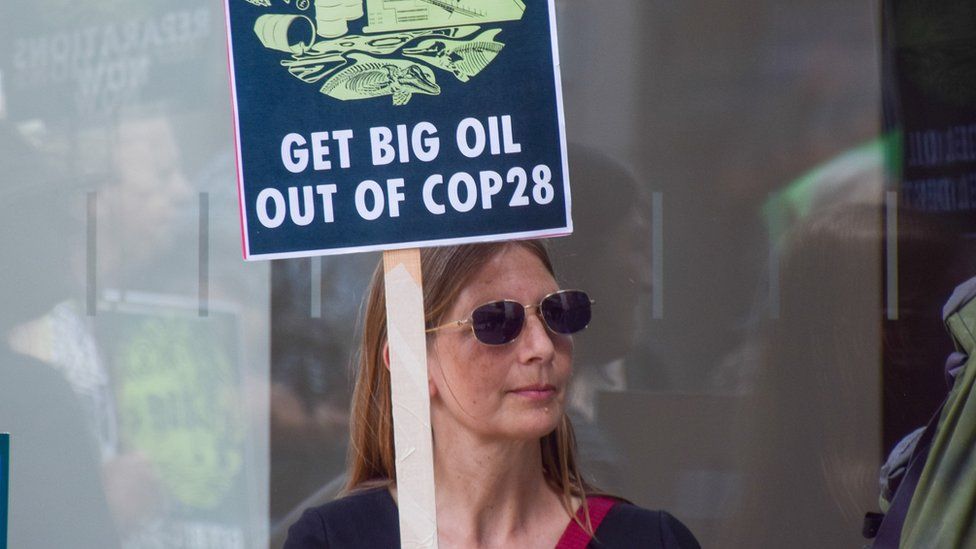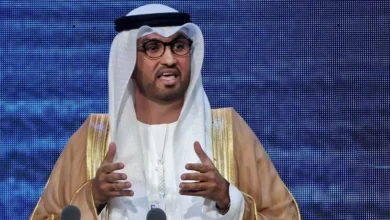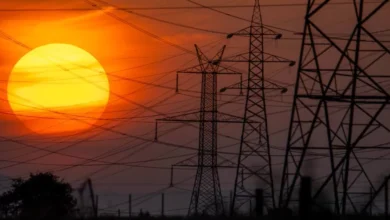COP28 ‘moment of truth’ for oil industry, says energy boss

The world’s oil and gas industry has been warned it faces a “moment of truth” at next week’s UN climate talks.
Dr Fatih Birol, head of energy watchdog the International Energy Agency, was speaking as the IEA published a new report on the future of fossil fuels.
He said the sector must choose between contributing to the climate crisis or “becoming part of the solution”.
Last year fossil fuel companies were responsible for just 1% of global investment in renewable energy.
The publication of this report just a week before the start of the UN climate summit, also known as COP28, is no coincidence. The IEA will want to put pressure on governments attending the conference to get an agreement on reducing the use of fossil fuels.
“The uncomfortable truth that the industry needs to come to terms with is that successful clean energy transitions require much lower demand for oil and gas, which means scaling back oil and gas operations over time – not expanding them. There is no way around this,” Dr Birol said.
This year’s conference is also controversial because a major oil producer is host.
In the run up to COP28, the man who will chair the climate talks, Sultan Al Jaber of the United Arab Emirates, has been criticised for prioritising a technology known as carbon capture and storage.
Carbon capture stops most of the CO2 produced from burning fossil fuels in power stations from being released into the atmosphere, and either re-uses it or stores it underground. But it is expensive and in its infancy.
Some critics say fossil fuel producers hope to use the technology to allow them to continue relying on oil and gas
Dr Birol said that meeting the world’s climate goals “means letting go of the illusion that implausibly large amounts of carbon capture are the solution”.
The report estimates that based on current oil and gas consumption the world would have to capture or remove some 32bn tonnes of carbon in order to stop temperatures rising by more than 1.5C above pre-industrial levels, seen as a key threshold to limit the effects of climate change.
And the amount of electricity needed to power these technologies would be greater than the entire world’s electricity demand today. Currently, only 45 million tonnes of carbon is captured worldwide each year.
Dr Steve Smith, executive director of Oxford Net Zero and CO2RE at the University of Oxford, told the BBC the report was still calling for investment in the technology but that it must come alongside other measures.
“It goes hand in hand with emissions reductions, trying to do carbon dioxide removal at the same time as not cutting our emissions is like being in a speeding car and trying to push the brake and accelerator at the same time,” he said.

The oil and gas industry is one of the largest investors in carbon capture and storage but came under heavy criticism in the report for not investing sufficiently in renewable energy.
The world’s entire clean energy investments are estimated at about $1.8tn (£1.44tn), according to the IEA. But fossil fuel producers are responsible for just 1% of that – or $18bn – with the rest coming from governments and other industries.
Brendan Curran, senior policy fellow at the Grantham Research Institute on Climate Change and the Environment, said: “This report from IEA highlights that despite that cacophony of claims from oil and gas producers, the actual levels of investment in the transition to net zero sector are negligible and the industry isn’t really doing anywhere near enough. This is during a period when oil and gas companies have been recording record profits.”
The fossil fuel industry reported revenues of $5tn in 2022 – a record high. And earlier this year BP and Shell rolled back on previous commitments to cut oil production following record profits.
As well as criticising fossil fuel companies the report also warned countries against drilling for oil as a means to provide energy security. Earlier this year UK PM Rishi Sunak granted new North Sea oil and gas licences as part of efforts, he said, to improve the UK’s resilience to volatile energy markets.
Dr Birol told the BBC that he wouldn’t comment on individual countries but that any new fossil fuel projects announced today would face “not only climate risks but business risks”, because by the time the oil reaches the market in seven or eight years’ time global oil consumption will be declining.











